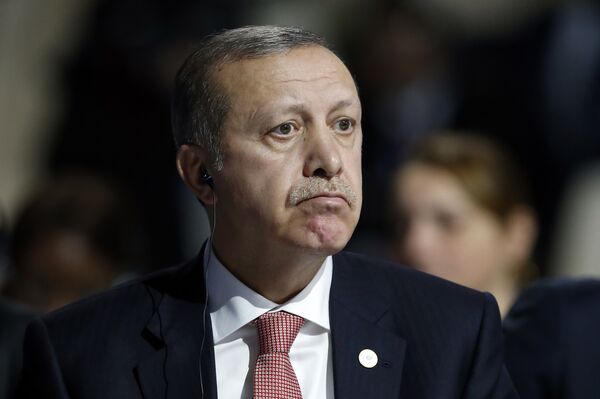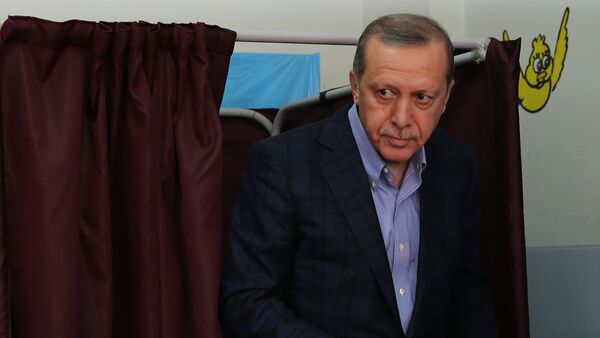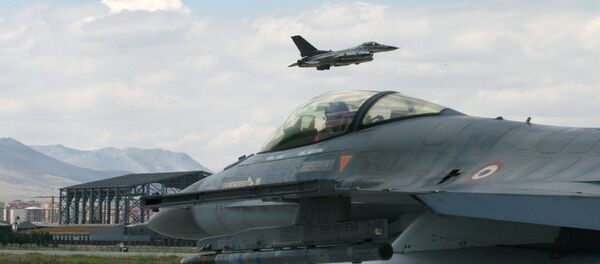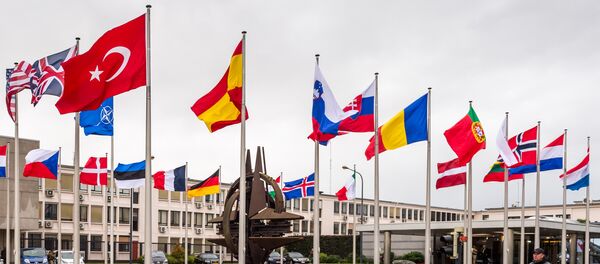In the wake of the gunning down of a Russian bomber in Syrian airspace, President Obama has argued that every country has the right to defend itself.
However, Obama’s articulation of Turkey’s “right to defend itself does not really apply in this case,” according to Henri J. Barkey, the Director of the Middle East Program at the DC-based Smithsonian Institute's Wilson Center.
Hence, he reasoned, an armed bomber on the fringes of Turkish territory is an unlikely threat to any country, let alone an important member of NATO.
While questioning why Turkey would feel threatened by “that single aircraft” and “why would the Russians, who are already saddled with numerous other problems, threaten a friendly country”, the author concluded that “this was not a case of self-defense but rather one of defending one’s sovereignty”.
But even with all the above in mind, Barkey states that “Turkey may now realize that it has overplayed its hand.”
“Erdogan, who initially said there was nothing to apologize for, is now saying that if they knew it was a Russian plane they would probably have acted differently. Erdogan likely changed his tune because Putin didn’t lose any time in retaliating against Turkish interests: Turkish convoys in Syria delivering supplies to the opposition have been bombed, Turkish businessmen have been denied entry at the Moscow airport, tourism packages are being cancelled, and Moscow is contemplating other measures, including the elimination starting January 1, 2016 of the visa-free travel program.”
“This, more than anything else, will make life harder for allied aircraft over Syria and is clearly something Washington wishes would never have happened.”
‘Turkey claims to be part of the solution in fighting ISIL, but often it’s been part of the problem.’
His view is echoed by Steven A. Cook, the Eni Enrico Mattei Senior Fellow for Middle East and Africa Studies at the Council on Foreign Relations.
“As Turkey and Russia dispute the incident, it is casting a spotlight on one of the most troubling developments in the evolving struggle in the Middle East: When it comes to fighting the Islamic State and extremism more generally, Turkey—and President Recep Tayyip Erdogan—has become a significant part of the problem, rather than part of the solution,” he wrote in his article for the magazine Politico.

“For the uninitiated, Erdogan’s statement must have seemed heartening. But close observers of Turkey know better: Over the past five years, American policymakers, Turkey watchers, terrorism experts and a slew of journalists have come to understand that while Ankara can play a constructive role in combating extremism and resolving the Syrian conflict, it has chosen not to.”
And as that conflict spreads and jumps borders, the Turks’ myopia on jihadism in Syria may very well come back to haunt them and their Western allies, he states.
Over time, the author says, extremism became a veritable instrument of Turkish statecraft—and also, not surprisingly, a threat within Turkey’s borders.
“The choices that Erdogan and top Turkish officials have made contributed to the vortex of violence and extremism that is Syria’s reality. Erdogan has never paid a price for these choices either at home, where he has hollowed out Turkish political institutions to ensure his grip on power, or abroad, where Turkey’s NATO allies are forced to pretend, by dint of circumstance and geography, that Ankara shares their goals.”
With all of that in mind, Cook criticizes the attitude of Turkey’s Western partners towards its policy.
“And it’s not just enabling jihadis or agreeing to fight the Islamic State without really fighting the Islamic State; at home, Erdogan has crushed the Turkish press, clamped down on social media, rerun an election earlier this year because the initial result wasn’t good enough and made sure his son-in-law was appointed energy minister,” he says.
“Yet Americans say nary a word about Erdogan’s thuggish approach to domestic and foreign policy. Germany’s Angela Merkel even showed up in Ankara in October with a bunch of goodies to help the Turkish leader’s party regain a parliamentary majority.”
“It’s good to be Erdogan. In the interest of alliance unity and solidarity, he will get a further pass from his NATO allies now that the plane incident has raised tensions between Ankara and Moscow,” he states.
However, he finally concludes, “as long as Washington determines not to call out the Turkish government for its bad behavior, Ankara will continue to sow chaos.”





